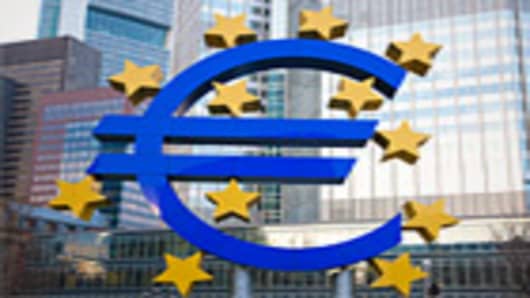European authorities plan to set a higher than expected capital threshold for the region’s banks and give them six to nine months to achieve that level or face government recapitalisations under the auspices of the eurozone’s 440 billion euro rescue fund, senior regulators said.
The European Banking Authority’s board of supervisors has approved in principle the idea that banks should be made to raise their core tier one capital ratios – the key measure of financial strength – to 9 percent, well beyond the current expectations of banks and analysts, even after absorbing writedowns on the value of their sovereign debt holdings.
Officials cautioned, however, that the 9 percent threshold – which could see dozens of banks forced to raise a combined 275 billion euros, according to Morgan Stanley estimates – is still being debated in national capitals and in Brussels.
Some senior officials at the European Commission, which is due to unveil its own plan for bank recapitalisations , support the higher levels and could announce their backing as early as on Wednesday.
However, some members of the EBA board, notably the German contingent, are understood to have dissented, and no firm decision has yet been taken. Analysts had previously expected banks to be told to raise capital levels to 6 or 7 percent. A final decision may not be taken until EU finance ministers meet ahead of a key October 23 European leaders’ summit.
The EBA, which has given banks a deadline of Thursday to submit up-to-date sovereign exposure data, is expected to complete its assessment of the capital shortfall by next week.
Financial market nervousness has escalated in recent weeks, helping lead to the collapse of Franco-Belgian bank Dexia and forcing other major European banks – including Germany’s Deutsche Bank and Austria’s Erste – to issue profit warnings.
Evidence of continued stress emerged on Tuesday as banks parked ever greater sums at the European Central Bank, rather than lending it to others. On Monday night, the amount left in the ECB’s overnight deposit facility hit 269 billion euros – the highest since June last year.
In another sign of tension, use of the ECB’s emergency lending facility, which incurs a penal interest rate, has been running at about 3 billion a day for the past week, suggesting acute problems somewhere in the banking system.
Jean-Claude Trichet, the ECB president, warned that Europe’s financial crisis had reached “a systemic dimension”. Addressing the European Parliament, Mr Trichet said delays in government action were “only contributing to aggravating the situation”. Europe’s institutions “must rise to the challenge and act together swiftly”.
The most important task was to restore the credibility of sovereign debt, Mr Trichet said. “It is absolutely fundamental. If we don’t have the credibility of the sovereigns, we don’t have a backstop if we have new possible crises – new dramas of the kind that we experienced in 2008. It is something that we are observing in real time, under our eyes.”
Although he did not mention Greece, Mr. Trichet’s warning hinted at the ECB’s alarm over attempts by Germany to push for a bigger burden being borne by private Greek government bondholders.
Additional reporting by Alex Barker in Brussels


